7 Things You Should Never Add to Your Coffee
Coffee is one of the few foods that almost all Americans consume on a regular basis. Seventy percent of Americans drink coffee at least once a week, and 62 percent of Americans drink coffee daily, according to the National Coffee Association.
You may already know that restaurants serve some of the unhealthiest coffee drinks you can sip—for example, Dunkin’s Butter Pecan Swirl Frozen Coffee has 1,160 calories and 168 grams of added sugar (336% DV) per 32-ounce large cup—but that doesn’t mean that flavoring your own brew at home is a slam dunk when it comes to improving your health. (For that, see: 8 Awesome Side Effects of Drinking Coffee.)
Now, we’re not saying you have to take your coffee black, but you do have to be mindful of what you’re putting in your coffee—especially since 67 percent of Americans consume coffee with add-ins such as sugar, cream, and sugar substitutes, according to a Public Health study. The same study determined that these add-ins tack on an extra 69 calories per day, with around 60 percent of these calories coming from empty-calorie sugar.
While the researchers admit that the number of extra calories from additives is small, if consumed every day and overlooked, they can easily add up and contribute to weight gain.
Make sure your healthy cup of joe stays that way by never adding any of the following ingredients to the antioxidant-rich brew. Then, find out What Happens To Your Body When You Drink Coffee.
Shelf-stable creamers
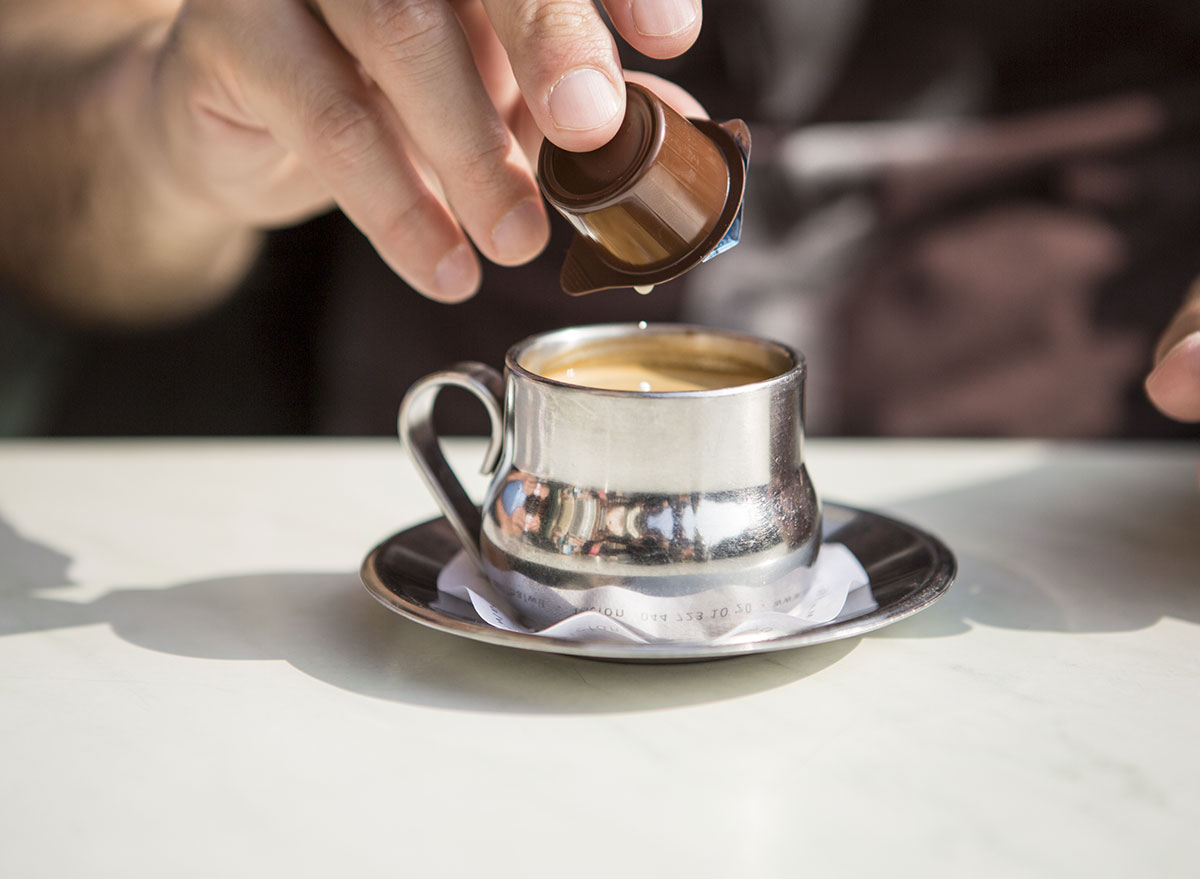
They’re certainly convenient for restaurants, but you may want to skip over that bowl of tiny room-temperature creamers if you’re looking out for your health. To make shelf-stable half & half creamers, manufacturers have to add synthetic additives as preservatives. One of the most commonly used additives is sodium phosphate.
While it is considered GRAS (generally recognized as safe) by the FDA, sodium phosphate is something you should pay attention to. The additive earned a spot on the Environmental Working Group’s Dirty Dozen Guide to Food Additives due to its connection to increased risk of heart problems.
The Center for Science in the Public Interest (CSPI) also put sodium phosphates on its list of additives to cut back on, meaning that its “not toxic, but large amounts may be unsafe or promote bad nutrition.” The CSPI explains that “most people consume far more phosphorus than they need, which may have adverse effects on kidney, bone, and cardiovascular health, especially for people suffering from kidney disease.”
STAY INFORMED: Sign up for our newsletter to get the latest food news delivered straight to your inbox.
Artificial sweeteners
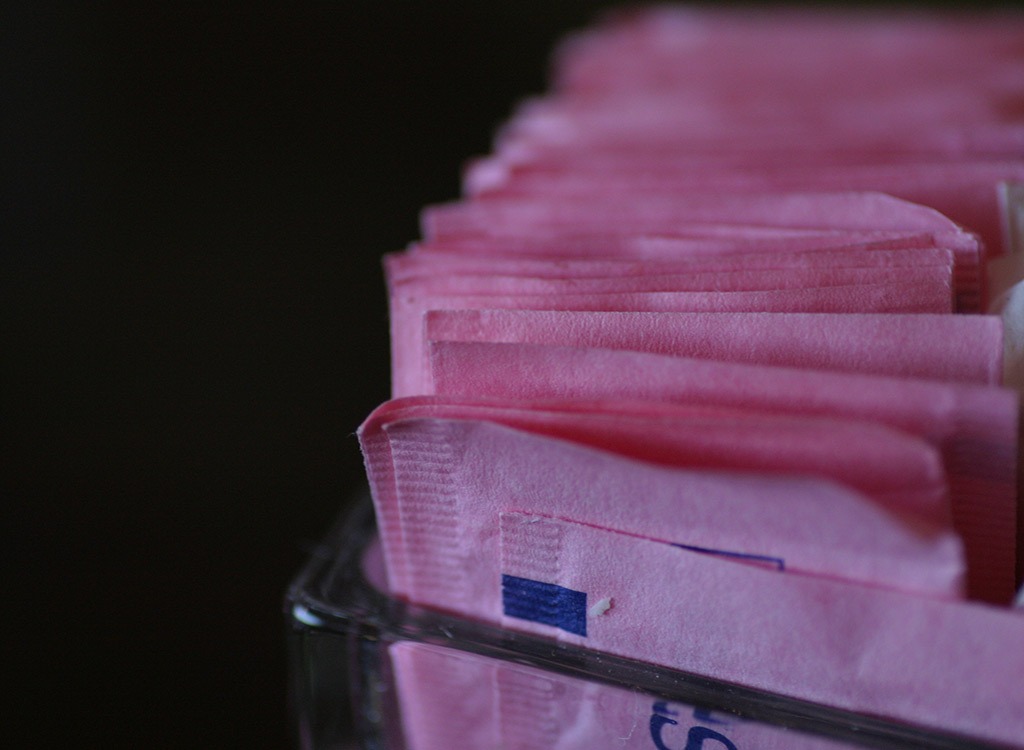
The problem with coffee additives is that they add extra, often empty, calories to your daily diet, right? So you may assume that zero-calorie artificial sweeteners should be a free pass, but that’s not necessarily the case. As of now, research on artificial sweeteners’ safety is mixed; While some studies have linked artificial sweeteners to supporting weight loss, Harvard Health summarizes that other studies have found that regular consumption of artificial sweeteners can lead to consuming more artificially flavored foods with less nutritional value as well as more high-calorie, sugar-laden foods. It may be worth leaving artificial sweeteners out of this daily habit if you want to set yourself up for long-term success. While you’re at it, consider ditching these 25 Awful Ingredients Everyone Still Uses—But Shouldn’t!
Creamers

We’re not talking about real milk, cream, or half-and-half, we’re talking about those flavored creamers. Not only are they loaded with sugar—each tablespoon contains 5 grams of sugar, and so adding three tablespoons equates to 15 grams of sugar per cuppa–they also contain bad-for-you additives. Think: palm oil, which increases levels of “bad” cholesterol; artificial flavors; and carrageenan, which has been linked to digestive distress in some people.
Flavored syrups

Take a look at the nutritional information for any coffee chain’s flavored beverages and you’ll immediately know why these syrups are on our list. For example, at Dunkin, adding the Chai tea syrup makes the sugar content of your latte jump from 7 grams to 58 grams!
Cane sugar
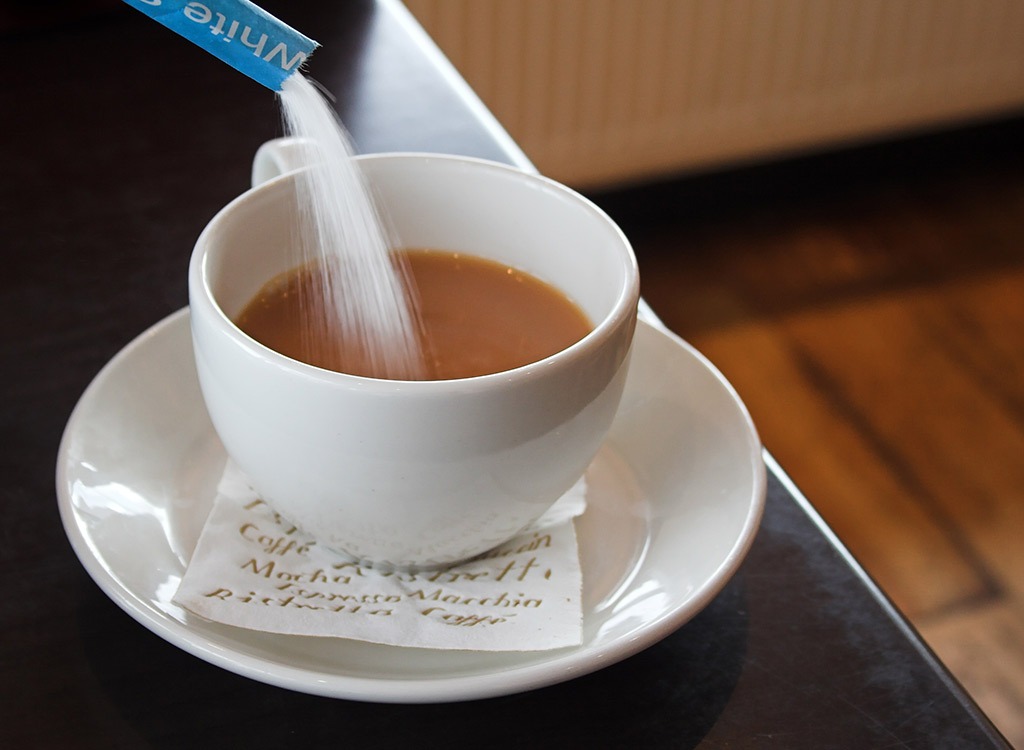
The National Coffee Association’s 2020 National Coffee Data Trends report found that 40 percent of Americans add some kind of milk and sweetener to their coffee drink. So that means that 40 percent of you reading this are guilty of adding some sort of sugar to your morning brew. While cane sugar in itself isn’t harmful, what is harmful is that Americans are consuming too much of it. Added sugars, along with refined grains and starchy vegetables, account for 42 percent of the average American’s daily calories, and can increase your risk of everything from obesity to diabetes to heart problems.
Oil-based keto creamers
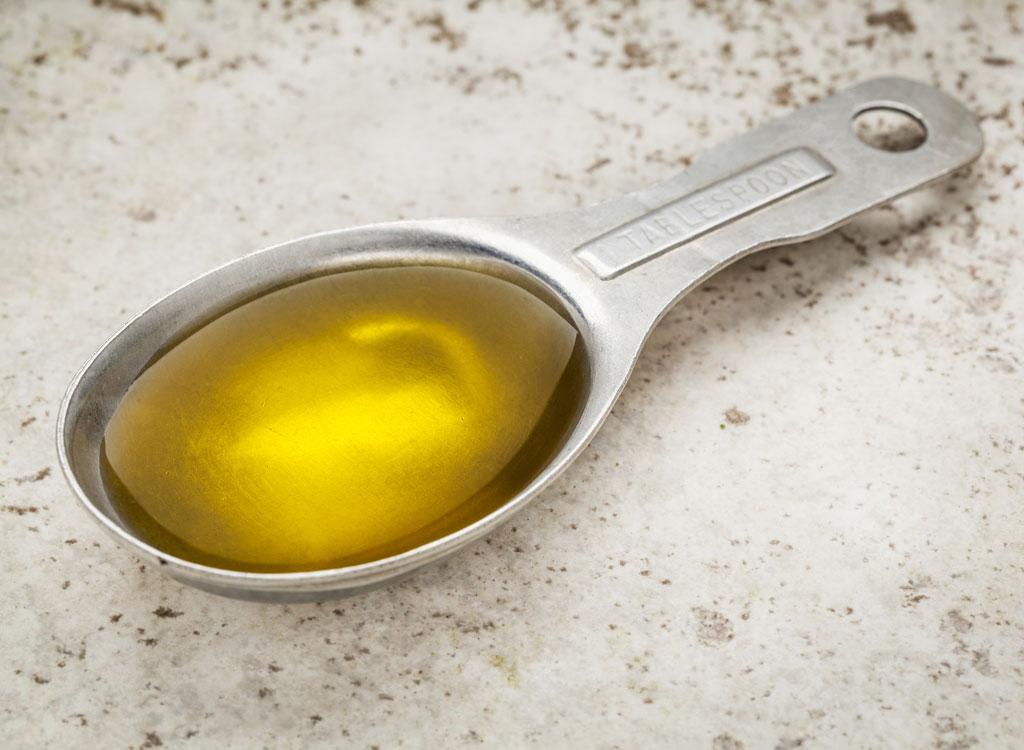
The keto diet may be extremely popular right now, but just because the fat-friendly diet has been linked to weight loss doesn’t mean that everything slapped with a keto label is good for you. Case in point: keto coffee creamers. If you aren’t on the keto diet (and even if you are), you should be limiting your daily intake of saturated fats, which have been linked to cardiovascular problems and weight gain. (See: Should You Be Worried About Eating Too Much Fat on a Keto Diet?) That means that not all keto creamers may be for you. While some are considered keto for being low in carbs and sugar, others are keto and are extremely high in fat: a one-tablespoon serving of one brand’s coffee booster contains 120 calories and 10 grams of saturated fat. That’s 50 percent of your daily saturated fat limit! Stick to low-fat, low-sugar creamer options if you’re following the keto diet.
Condensed milk
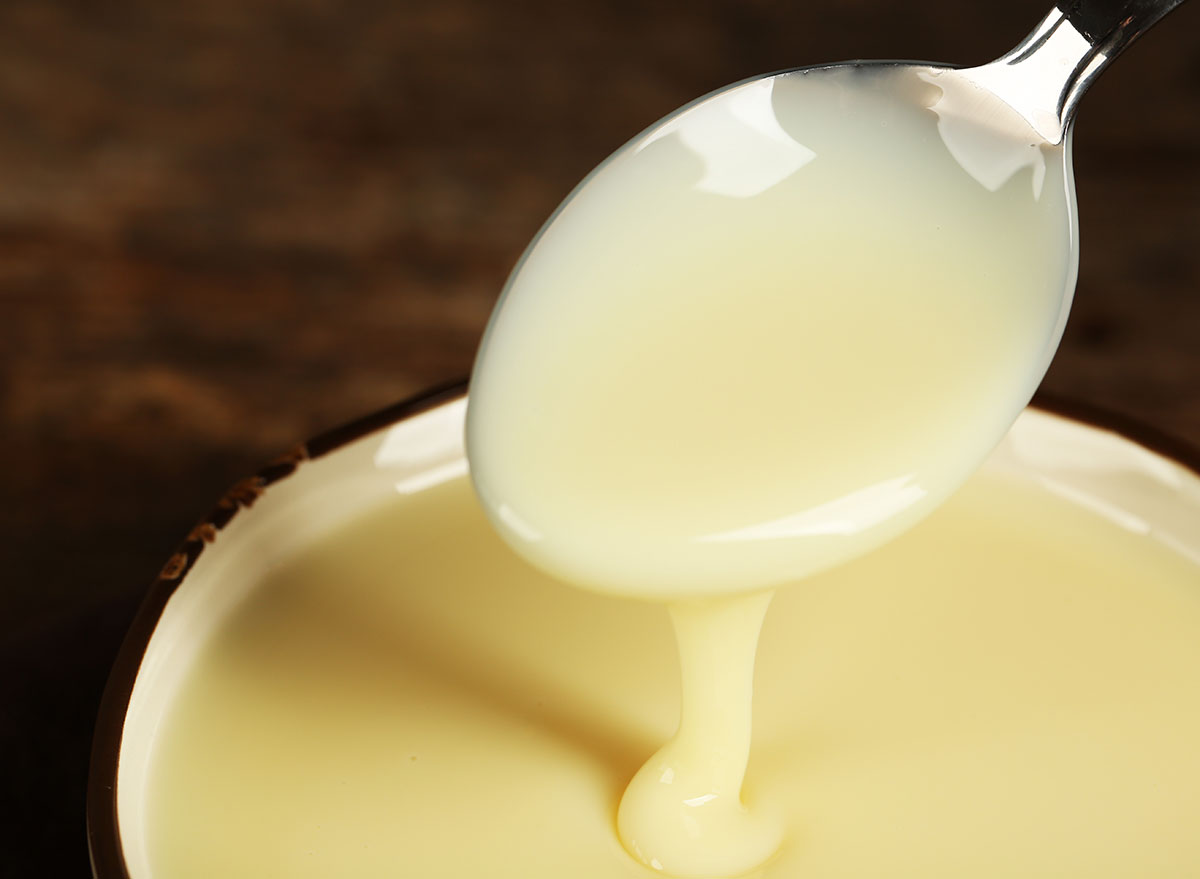
A common ingredient in Vietnamese Iced Coffee as well as the Spanish drink Café Canario, condensed milk is one of the unhealthiest ingredients you can add to your morning brew. Just two tablespoons of sweetened condensed milk contain 22 grams of sugar and 130 calories—that’s just three grams shy of having as much sugar as a Hershey’s chocolate bar. Instead of sweetened condensed milk, try a no-sugar-added milk alternative like any of these The 8 Best Almond Milks to Buy, According To Nutritionists.
